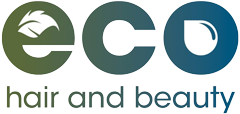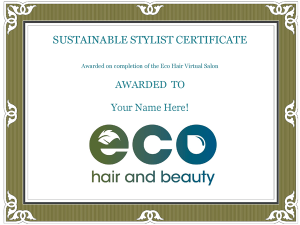The following article was sent to us by LHAA. Pictures and content from LHAA. The original article can be found here: https://www.lhaa.co.uk/press/publications/natural-hair-products-better-for-your-hair-and-planet
For more see their homepage: https://www.lhaa.co.uk/
Natural hair products – better for your hair and your planet
Have you checked what’s in your shampoo lately? How about your smoothing serum? If not, have a read of the ingredients. You’ll likely find a whole host of chemicals that you’d probably rather weren’t in your home, let alone anywhere near your hair. Ingredients such as sodium lauryl sulphate and phthalates, which are often used because they’re cheap and can give you short term benefits. Used long-term, they can damage your hair, leaving it dry, brittle and prone to frizz.
And it’s not just the health of your hair you need to be worried about. Some of the most common chemicals used in shampoos have been linked to skin irritation, sore eyes and even cancer. Lynn Ladbrook, CEO of Breast Cancer UK, says, “The ever expanding number of synthetic chemicals found in cosmetics and personal care products is a concern.”
Many of these chemicals are also harmful to the environment. Washed down the drain, they end up polluting rivers, seas and soil.
We want to make it easier for you to do the right thing for your hair and the planet, so we’ve put this handy guide together to help you do just that. It covers some of the ingredients you might want to avoid, along with our recommendations for brands to switch to.
What to avoid
We’ve given you tips on what to eat for healthy hair, but what about the no go’s for your washing routines? Ingredients are only included in a product if the authorities believe them to be safe in the quantities used. However, we often end up being exposed to a real cocktail of chemicals, through cleaning products, toiletries, makeup and so on. What’s more, chemicals seem to pass from the ‘safe’ to ‘banned’ list fairly regularly. Below is a list of some of the most common chemicals that you might want to avoid.
Sulphates
Most shampoos you’ll find on the high street contain sodium lauryl sulphate (SLS) or sodium laureth sulphate (SLES). They’re cheap and effective cleansers, and produce lots of bubbles. However they’re also very harsh. SLS is so powerful it’s used for everything from cleaning clothes to degreasing car engines. While you might want that level of cleaning power if you’ve spilled cheese sauce all down your favourite top, you don’t want it for your hair. Think of it as washing your face with Fairy liquid.
SLS strips your hair of its natural oils. You might think that’s a good thing if your hair is prone to greasiness, but it can send your hair into overdrive. So you could end up with damaged, dry brittle hair, or a greasy mess. Either way, not a good look. SLS can also irritate your eyes and skin. If you’re prone to eczema, psoriasis or any other skin complaints, cutting out SLS can make a huge difference. SLS is toxic to marine and other aquatic life, so not something you want to be rinsing down the plug hole.
Parabens
Parabens are used as preservatives, to help prolong the shelf life of a product. They’ve also been linked to breast cancer and hormone problems. Several parabens have now been banned for use in cosmetics and toiletries across the EU. Common ones you might want to keep an eye out for include methylparaben, ethylparaben, butylparaben, propylparaben and heptylparaben. They also sometimes go by their E numbers, so watch out for E218, E214, E216 and E209.
Phthalates
Phthalates are used as solvents and to make a fragrance last longer. They’ve been linked to a wide range of problems, from birth defects to asthma, cancer and ADHD. Phthalates can be found in everything from plastic food and drink cartons to shampoo. They’re not always listed on the ingredients labels, so you might want to look out for products specifically promoted as being ‘phthalate-free’.
Formaldehyde
It’s hard to believe that the chemical used to preserve dead bodies is also used as a preservative in toiletries, but it is. Formaldehyde has been found to increase the risk of several types of cancer, but only in fairly large amounts. It can also irritate your skin and eyes and cause allergic reactions.
Isopropyl Alcohol
Isopropyl Alcohol is best avoided if you don’t want your hair to end up dry and damaged. It’s often added to shampoos to help the other ingredients to mix together properly. Like sodium lauryl sulphate, it’s just too harsh for your hair. Isopropyl Alcohol can also irritate your skin, so definitely one to avoid if you have any skin complaints.
Propylene Glycol
Propylene Glycol is a popular ingredient with manufacturers as it has a multitude of uses. However, it can also irritate your skin and eyes. Propylene Glycol isn’t as toxic as many of the other ingredients we’ve mentioned, but if you have sensitive skin you might want to avoid it.
Buying natural or eco shampoos and conditioners
One of the easiest ways to avoid chemicals such as those above is to choose natural products. That can be easier said than done, however. There is little regulation on what the term ‘natural’ actually means, so there’s a lot of greenwashing out there. The brands below all have very high standards when it comes to ditching the chemicals, protecting the environment and creating products that deliver great results. They’ve found effective, natural substitutes for the synthetics.
Ethical Consumer (june 2020) report that in the last 3 years, several companies have removed the three toxic chemicals: Parabens, phthalates and triclosan from their cosmetics products, including Suma, Honesty and Colgate-Palmolive. Others are starting to remove some of them, including Body Shop, L’Oréal, Natura Cosmeticos, Unilever, and Procter and Gamble.
Ethical consumer updated their best buys for toxin free shampoos in June 2020 which are:
Attitude, Bentley Organics, Caurnie Soap, ALTER/NATIVE (Triangle Wholefoods Collective Ltd. (t/a Suma Wholefoods), Conscious Skincare, Friendly Soap, Honesty, Little Soap Company, L’Occitane, Pure Nuff Stuff, Laverana, Hain Celestial, Essential Care (Organics), Badger, Green People, Weleda, A. Vogel, Colgate-Palmolive, Neal’s Yard, PHB Beauty and Faith in Nature.
Faith in Nature
Manchester-based Faith in Nature has been creating natural skin and hair care products for more than 30 years. The award-winning Lavender and Geranium range smells amazing and cleanses hair gently, but effectively.
Green People
British brand Green People is celebrating its 20th anniversary in 2017. If your hair has been damaged by SLS and other chemicals, try Green People’s Intensive Repair shampoo to restore your locks to their former glory.
Jason
Australian brand Jason makes a wide range of shampoos and conditioners. Super Shine Apricot is a good choice if you’re looking to add shine without coating your hair.
Avalon Organics
If you ever suffer from a dry, itchy scalp or dandruff, try Avalon Organics Tea Tree Scalp Treatment. It’s very effective at calming your skin and reducing itchiness and flaking.
Organic Surge
Organic Surge products are rich in plant extracts. The Moisture Boost range is a winner if you have dry or frizzy hair.
Weleda
Weleda have been making natural products for 90 years! The Oat Replenishing shampoo contains organic jojoba oil and oat extracts to help reduce breakages and split ends.
Saach Organics
Saach Organics products are 100% natural and based on traditional Ayurvedic recipes. The Hair Strengthening Shampoo and Nourishment Conditioner are a real treat. They’re deeply conditioning and help to add shine.
Going green
Natural hair products are usually better for the environment, but not always. Palm oil, for instance, is a popular natural ingredient, but it’s responsible for the destruction of millions of hectares of rainforest. The brands above all take their environmental responsibilities seriously, from sourcing sustainable ingredients, to helping customers to recycle.
It’s believed that around 35.8 million plastic bottles are used every day in the UK alone, and millions of these end up in landfill. At the moment, only around 14% of plastic packaging is recycled around the world. According to the Ellen MacArthur Foundation, that figure could be upped to 70%, if customers, manufacturers and authorities worked together.
As well as recycling your bottles, there are other ways you can help to reduce plastic waste. For a start, look for products that come in recycled plastic, and that can be recycled by your local council. It also helps to know what labels stand for, as they can be confusing. Common symbols include:
 Mobius Loop
Mobius Loop
This shows that something can be recycled. However, that doesn’t necessarily mean that your local council can accept it. If you see a percentage in the middle, it means that the packaging is made up of that percentage of recycled material.
 Plastics
Plastics
A similar symbol to the Mobius Loop shows what type of plastic the packaging is made from. The ‘chasing arrows’ centre around a number between one and seven. This number is the ‘Resin Identification Code’. You can use it to check whether your council can recyle that particular type of plastic.
 The Green Dot
The Green Dot
Customers are often confused by the Green Dot. It means that the producer has made a financial contribution towards the recovery and recycling of packaging. So it’s a good thing to look for, but doesn’t necessarily mean that the packaging is recyclable, or is made from recycled materials.
 Tidyman
Tidyman
While this is just a reminder to dispose of packaging responsibly, on its own it often means that a product cannot be recycled, so needs to be thrown in your household waste bin.
Buying cruelty-free shampoo
Most natural brands have good ethical standards, so they’re better for you, the planet and the people who grow the ingredients. The brands we’ve recommended are all also cruelty-free and suitable for vegetarians. A handy resource is www.leapingbunny.org/guide/brands, which lists all the brands that are accredited with the Leaping Bunny, cruelty-free logo.





